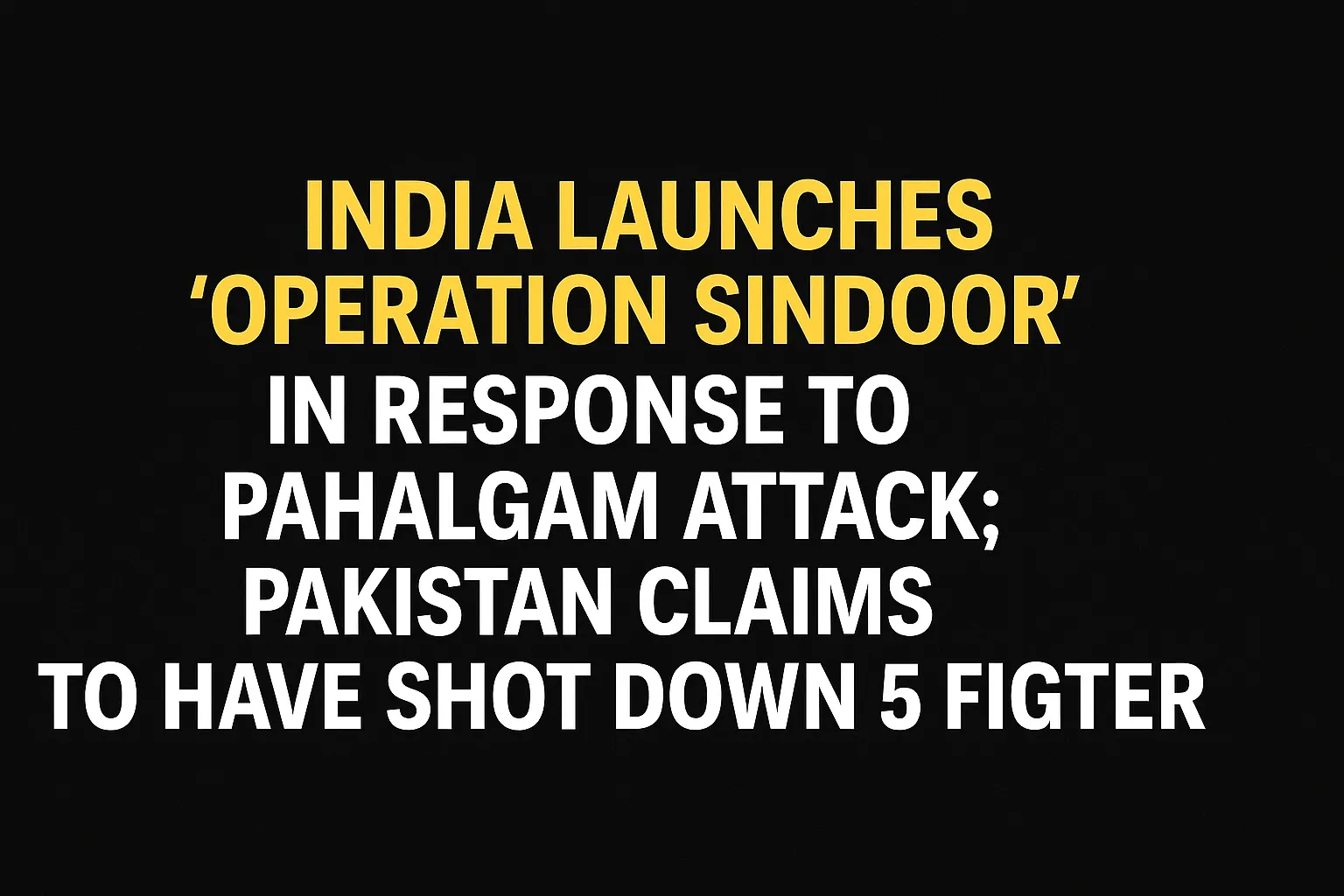India executed strikes on nine terror camps in Pakistan and PoK during 'Operation Sindoor', following the deadly Pahalgam strike that killed 26 civilians. Pakistan claims that it caused civilian casualties and destroyed Indian jets, further raising tensions between the nuclear powers.
India conducted ‘Operation Sindoor’
India conducted ‘Operation Sindoor‘, targeting nine terror locations in Pakistan and PoK following the Pahalgam attack that resulted in the deaths of 26 civilians. Following India’s strikes, Pakistan claims it has downed five Indian jets, and said it has vowed to retaliate. Rising tensions in the region are evidenced by increased firing across the border, and schools have also been closed due to intensifying violence.
New Delhi/Islamabad – Escalation Between Nuclear-Armed Neighbours
In a dramatic escalation of tensions between nuclear-armed neighbours, India launched “Operation Sindoor” early Wednesday morning, striking nine terror-linked locations across Pakistan and Pakistan-occupied Kashmir (PoK). The operation was conducted in retaliation for the deadly April 22 attack in Pahalgam, Jammu & Kashmir, where 26 Hindu pilgrims were killed by Islamic militants.
Indian Defence Ministry Statement
According to the Indian Defence Ministry, the airstrikes were precisely aimed at terror infrastructure belonging to Jaish-e-Mohammed (JeM) and Lashkar-e-Taiba (LeT). The statement emphasized that “India has demonstrated significant restraint in both target selection and execution methods.”

The Targeted Locations Included:
- Bahawalpur (JeM HQ)
- Muridke (LeT Camp)
- Gulpur (PoK)
- Savain Sector
- Bilal Launchpad (JeM)
- Kotli Camp (LeT)
- Barnala Camp
- Sarjal Camp near Samba
- Mehmuna Camp near Sialkot
India’s armed forces stated the mission was a “pre-emptive strike against terror elements” and declared the operation a success, claiming “Justice is delivered. Jai Hind!” on social media.

Pakistan’s Response
Pakistan’s military swiftly responded, claiming that five Indian fighter aircraft were shot down during the offensive. Major General Ahmed Sharif, spokesperson of Pakistan’s Inter-Services Public Relations (ISPR), condemned the Indian operation as an act of war, warning, “India’s momentary euphoria will be met with lasting regret.”
Civilian Casualty Claims by Pakistan
The Pakistan Foreign Ministry alleged that India violated international law by attacking civilian areas, including mosques, and vowed to retaliate at “a time and place of its choosing.” Islamabad reported that eight civilians were killed and over 35 injured in the missile strikes across six Pakistani regions, denying any terrorist presence at the attacked sites.
Reports of Indian Jet Crashes
Meanwhile, Reuters reported that three Indian fighter jets may have crashed in Indian-administered Kashmir overnight, according to local sources—although New Delhi has not confirmed any such losses.
Civilian Impact and International Reactions
Following the cross-border skirmishes, heavy shelling was reported along the Line of Control (LoC) and the international border. Both Indian and Pakistani troops exchanged intense fire, resulting in additional casualties—11 reported dead in Pakistan and 3 in India so far.
In the wake of escalating tensions, all schools in Jammu, Samba, Kathua, Rajouri, and Poonch were ordered closed on Wednesday. Border districts in Rajasthan and Punjab also suspended classes, citing safety concerns.
Indian National Security Advisor Ajit Doval reportedly informed U.S. Secretary of State Marco Rubio immediately after the strike. The U.S. State Department later issued a statement urging both sides to exercise restraint and closely monitoring the unfolding situation.
Economic Fallout
The Pakistan stock market experienced a severe setback on Wednesday, May 7, as investors reacted to India’s overnight strikes on nine terrorist sites in Pakistan and Pakistan-occupied Kashmir carried out under ‘Operation Sindoor‘.
Pakistan’s financial markets reacted sharply to the news. The Karachi Stock Exchange (KSE-100) plummeted by over 6,200 points (5.5%), dropping from Tuesday’s close of 113,568.51 to 107,296.64. The index had already dipped 3.7% after the Pahalgam attack.
In contrast, Indian markets remained relatively stable. Paytm shares soared almost 7%, even as its parent company, One97 Communications reported a consolidated loss of ₹545 crore for Q4, largely due to a decrease in processing fees and ESOP costs.
“With both parties accusing each other of cross-border attacks and attacking civilians, the potential for a deeper conflict is high. India claims to have only targeted terror linked infrastructure with no collateral damage while Pakistan stated the attack was an unprovoked violation of sovereignty. While both sides begin to use diplomatic channels and the world waits and watches, the region stands again on the brink of lengthy instability.”

